Celebrating 35 years: defying boundaries, redefining possibilities
Celebrating 35 Years:

Celebrating 35 years: defying boundaries, redefining possibilities
Celebrating 35 Years:
Exciting research data reported across the spectrum of myeloma at the 66th Annual Meeting & Exposition of the American Society of Hematology
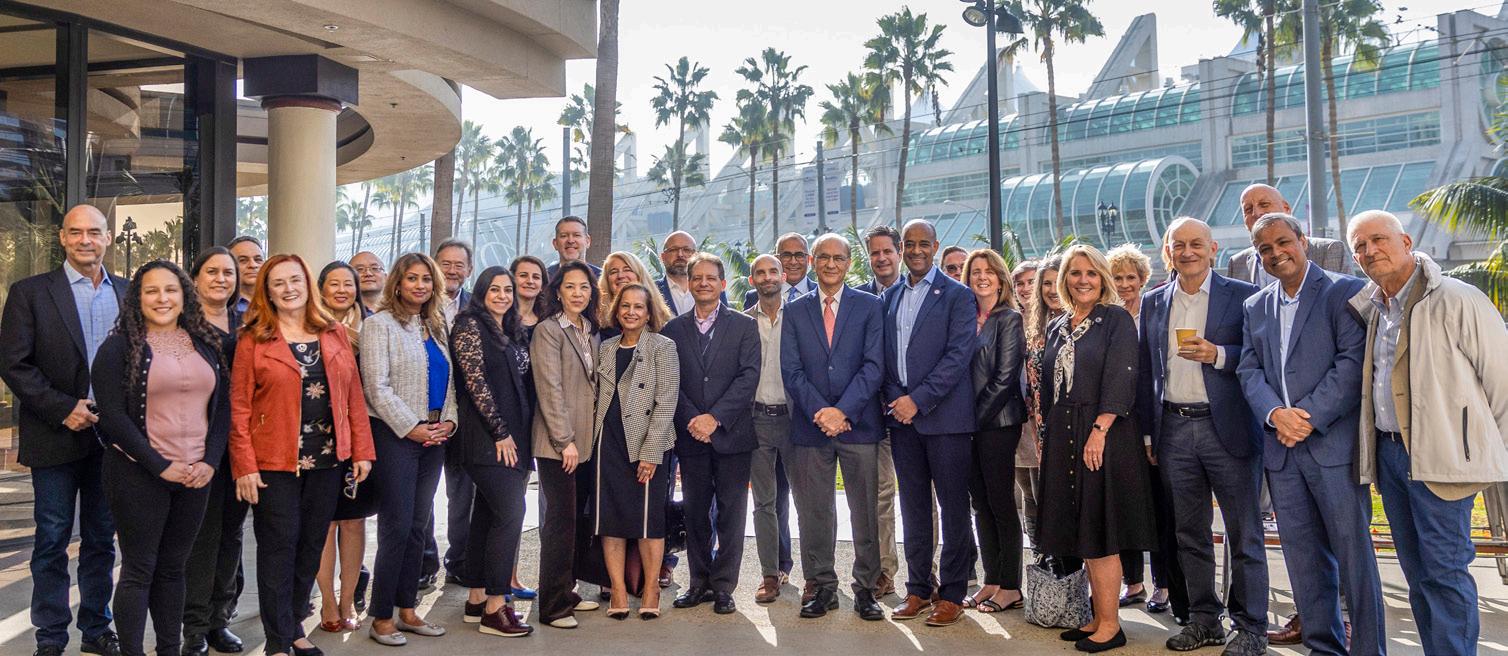
The IMF Team at the 66th Annual Meeting & Exposition of the American Society of Hematology included members of the IMF International Myeloma Working Group, the IMF Black Swan Research Initiative®, the IMF Scientific Advisory Board, as well as myeloma patients, care partners, and advocates
Research on Health Equity in Myeloma
Studies presented at the 66th Annual Meeting & Exposition of the American Society of Hematology include abstracts on overcoming healthcare disparities in myeloma PAGE 7
Myeloma Support Group Leaders at ASH
The IMF Myeloma Voices Team of patient community leaders shares their experiences of the 66th Annual Meeting & Exposition of the American Society of Hematology PAGE 8

IMWG Conference Series from ASH 2024
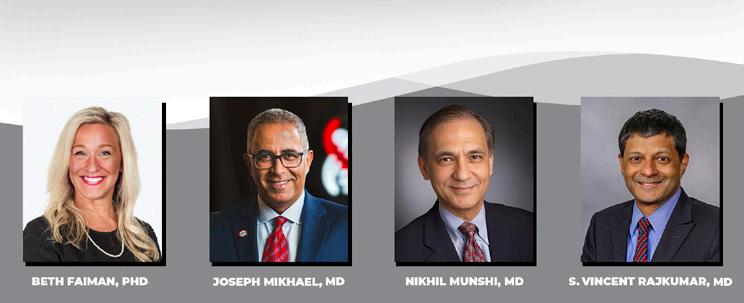
Watch a replay of this informative webinar moderated by Dr. Joseph Mikhael (IMF Chief Medical Officer), with expert panelists Beth Faiman (IMF Nurse Leadership Board), Dr. Nikhil Munshi (IMF Scientific Advisor), and Dr. S. Vincent Rajkumar (IMF Chairperson of the Board). Click HERE or visit videos.myeloma.org and select the “ IMWG” tab.
Latest Myeloma Updates from ASH 2024 Easy-to-understand
for patients and care partners
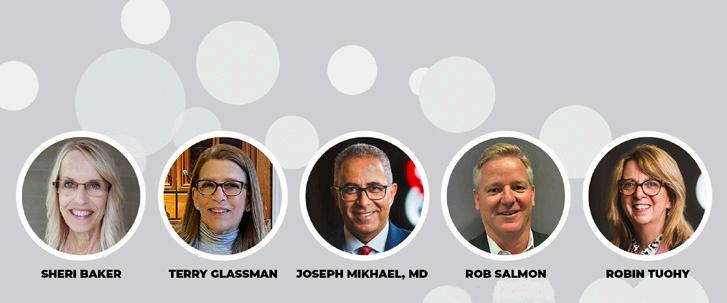
Watch a replay of this patient-friendly review of key myeloma research from the ASH meeting. Hosted by Dr. Joseph Mikhael (IMF Chief Medical Officer), with myeloma support group leaders, patient advocates, and members of the IMF Myeloma Voices at ASH Team. Click HERE or visit videos.myeloma.org and select the “ASH” tab.
IMF videos are your all-access ticket to a deeper understanding of myeloma research. Listen in as leading myeloma investigators talk about their research projects. Visit videos.myeloma.org and select the “ASH” tab. Check back often for updated content.
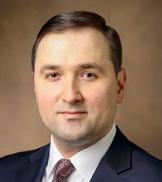
Muhamed Baljevic , MD
STOMP phase Ib/II clinical trial evaluating efficacy and safety of SPd combination for relapsed or refractory multiple myeloma shows promising overall response rates.
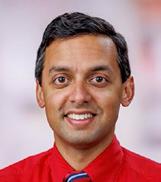
Rahul Banerjee, MD
Secondary analysis of BMT CTN 0702 phase III clinical trial evaluates the impact of omission of 24-hour urine tests on predictions of progression-free survival in myeloma.
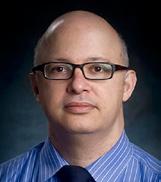
Luciano Costa, MD, PhD
The impact of measurable residual disease progression (MRD-P) on treatment options in patients with newly diagnosed myeloma after quadruplet therapy and ASCT.
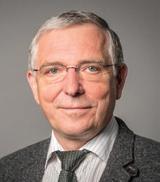
Hartmut Goldschmidt , MD
GMMG-HD7 phase III study of Isa-VRd shows significantly increased minimal residual disease (MRD)-negativity in ASCT-eligible patients when compared to VRd alone.
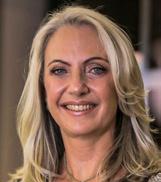
Vania Hungria, MD, PhD
DREAMM-7 clinical trial demonstrates superior progression-free survival of BVd vs. DVd in relapsed or refractory myeloma patients after at least one prior line of therapy.
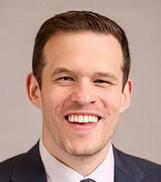
Andrew Kowalski, PharmD
The efficacy of tocilizumab prophylaxis to mitigate cytokine release syndrome (CRS) in patients with relapsed or refractory myeloma treated with bispecific antibodies.

Hang Quach, MD
ISB2001 phase I clinical trial of a first-in-human trispecific antibody demonstrates a favorable safety profile in heavily pretreated patients with advanced myeloma.
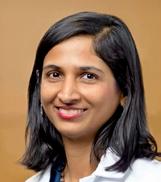
Urvi Shah, MD NUTRIVENTION
clinical trial explores the impact of highfiber plant-based dietary intervention on progression and immune response in patients with MGUS and SMM.

Saad Usmani, MD
DREAMM-9 clinical trial evaluates dosing schedules and safety profiles of belantamab mafodotin plus VRd for newly diagnosed myeloma patients ineligible for ASCT.
Take advantage of the hyperlinks in Myeloma Today by signing up for the digital edition at subscribe.myeloma.org, where you can also sign up to receive alerts about IMF events, webinars, teleconferences, and advocacy actions, as well as our e-newsletter Myeloma Minute And engage with us on social media!
As I look toward the future, I am filled with optimism and gratitude. The IMF’s achievements would not have been possible without the unwavering support of our global community – patients, care partners, healthcare professionals, researchers, industry partners, and advocates. Together, we are shaping a world in which every myeloma patient can live life to the fullest, free from the burdens of this disease.

IMF Scientific Advisory Board:
Dr. Philippe Moreau, Yelak Biru, Dr. Joseph Mikhael, Dr. S. Vincent Rajkumar, Dr. Thomas G. Martin, Dr. María-Victoria Mateos, Dr. Vania Hungria, Dr. Nikhil Munshi, and Dr. Saad Z. Usmani.
Not pictured: Dr. Wee Joo Chng, Sigurður Y. Kristinsson, Dr. Shaji Kumar, Dr. Sagar Lonial, and Dr. Jesús San Miguel.
The challenges we face are immense, but so are the opportunities. Myeloma is a complex disease, but thanks to advances in research, technology, and patient advocacy, we are on the cusp of transformative changes. The IMF mission remains steadfast: to improve the quality of life of every myeloma patient while driving efforts toward prevention and a cure.
Research is the backbone of progress. The IMF is committed to accelerating the research to improve patient care. In 2024, we continued to fund groundbreaking projects like the ASCENT and the iStopMM clinical trials, which are pushing the boundaries of what we know about myeloma. The IMF’s new Immunotherapy Database is bringing us closer to a time when patients are offered more personalized and effective treatments.
The IMF prioritizes research that aligns with the real-world needs of patients. Our focus is not only on treatment but also on prevention and early intervention. By collecting real-world evidence from myeloma patients around the globe, we can better understand the disease’s nuances and drive clinical breakthroughs that resonate with patients’ experiences. The IMF’s partnerships with organizations like ZS Associates, LatentView Analytics, and Amazon Web Services enable us to leverage advanced data analytics to turn insights into solutions.
Innovation is at the heart of the IMF’s approach to patient care. In 2024, we launched several digital tools that provide personalized support to patients and care partners. One of our most exciting developments is Myelo®, the first AI-powered chatbot dedicated to answering questions about myeloma and connecting users with resources. Myelo reflects our commitment to supporting patients with answers when they need them.
Our Clinical Trials Matching Engine, launched in collaboration with SparkCures, is breaking down barriers to clinical trial participation. We’ve created a platform that helps patients find clinical trials tailored to their specific needs and preferences. We are excited to continue refining these tools and exploring new ways to make a meaningful difference in patients’ lives.
Access to high-quality, patient-centered care should be a right, not a privilege. As part of the IMF’s strategic priorities, we are reaching underserved populations that face barriers to diagnosis, treatment, and support. Myeloma disproportionately affects
African Americans, and many other communities also struggle with access to quality healthcare. Healthcare disparity is unacceptable, and the IMF is determined to help bridge this gap.
To achieve this, we are broadening our reach through the Global Comprehensive Patient Experience 2.0, a program designed to provide personalized, culturally sensitive support to myeloma patients worldwide. By combining technology with human expertise, we aim to offer patients and their families the resources they need to make informed decisions about their care. Our approach is holistic, acknowledging that each patient’s journey is unique, and we are here to support them every step of the way.
The IMF’s strength lies in its community. From support groups and patient education events to the Global Myeloma Action Network (GMAN), the IMF is building a powerful coalition dedicated to improving the lives of patients. In 2025, the IMF will continue to collaborate with healthcare professionals, researchers, policymakers, and the myeloma patient community to advocate for increasing access to care, eliminating financial barriers, and prioritizing patient-centric research. We invite each of you to join us in creating a world where myeloma patients have a stronger voice in their own care.
The IMF’s vision is bold: a world where every myeloma patient can live life to the fullest, unburdened by the disease. With your support, we can turn this vision into reality. With determination, innovation, and community, we will continue to make meaningful strides. Thank you for being part of our journey. Your support fuels our mission and strengthens our resolve. Together, let’s look forward to a future where every myeloma patient has access to the care, information, and support they deserve.
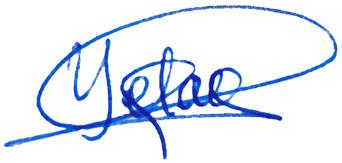
Yelak Biru IMF President & CEO Myeloma Patient Dx 1995
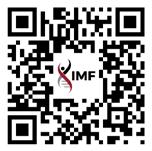
By Dr. Joseph Mikhael IMF Chief Medical Officer
In December 2024, nearly 30,000 people gathered to learn of the advances in all fields of hematology at the Annual Meeting of the American Society of Hematology (ASH), held in sunny San Diego, CA. Among the record-breaking 8,500 abstracts submitted to the meeting, nearly 1,200 abstracts were related to multiple myeloma! Many of these abstracts held great promise for patients with myeloma and their care partners. Below are the highlights that I would like to share with you.
The myeloma-related abstract that was arguably the most discussed at ASH was the AQUILA phase III clinical trial which addressed the issue of whether or not to treat high-risk smoldering multiple myeloma (HR-SMM). This study compared the use of single-agent Darzalex® (daratumumab) for 3 years vs. active monitoring (observation only).
Impressive results demonstrated that at 24 months, 79.9% of patients in the Darzalex arm of the study still had not progressed to active myeloma, compared to only 63.3% in the observation arm. At 5 years, 63.1% of patients in the Darzalex arm still had not progressed, compared to only 40.8% in the observation arm.
There was also an overall survival (OS) advantage at 5 years, with 93% of patients in the Darzalex arm still alive, compared to 86.9% in the observation arm. This approach is an option for patients with HR-SMM who may be considering observation versus full myeloma therapy. This approach may even delay therapy in some patients such that they never need therapy.



Other treatment approaches for HR-SMM are being studied. More intensive therapies, including chimeric antigen receptor (CAR) T-cell therapy and combination therapy with more than one drug, are demonstrating promising results.
Given the recent FDA approvals of “quadruplet” (4-drug) therapies for newly diagnosed multiple myeloma (NDMM), this approach is becoming the standard-of-care (SOC) in the vast majority of patients. Several abstracts at ASH validated this approach, including the German GMMG-HD7 clinical trial of Sarclisa® (isatuximab) + Velcade® (bortezomib) + Revlimid® (lenalidomide) + dexamethasone (Isa-VRd) compared to the “triplet” (3-drug) therapy with VRd.
In this study, the majority of patients achieved minimal residual disease (MRD)-negativity with the quadruplet plus transplant and less than half achieved MRD-negativity with the VRd regimen without Sarclisa. The IMF’s video interview with Dr. Hartmut Goldschmidt, the principal investigator of the GMMG-HD7 study is available at myeloma.org/imf-videos by clicking the “ASH” tab. If you are reading this article in digital format, you can access the video interview directly by clicking HERE .
We will no doubt continue to see more quadruplet use in patients with NDMM. However, by contrast, a French study demonstrated the feasibility of starting the triplet of Darzalex + Revlimid + dexamethasone (DRd), which can be done with only 2 months of dexamethasone.
So sometimes more is better, and other times less is more! How do we decide? We can conclude that more mechanisms of action (MOA) working together against myeloma is important, but also
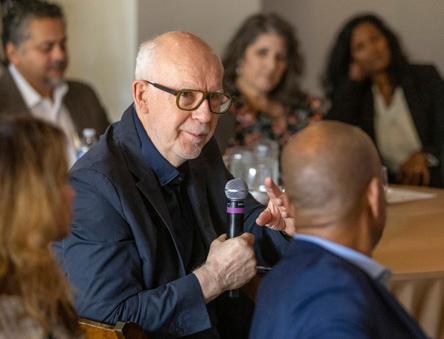
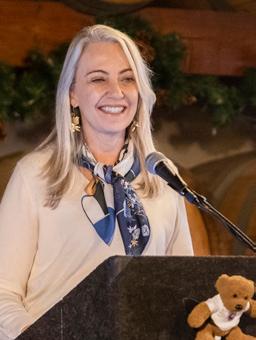
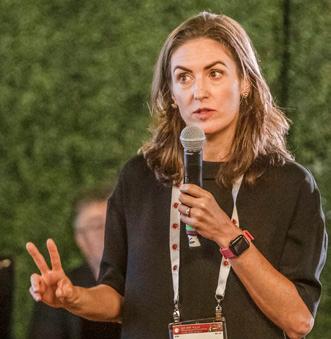

that we can taper down dosing, especially with the steroid dexamethasone. Read the “Down with Dex” section below!
Revlimid given as maintenance therapy post-transplant has been the standard of care for more than a decade. Many studies have sought to add other options to maintenance therapy, including the combination of Darzalex + Revlimid (D-R) in the AURIGA clinical trial, or even novel drugs like Tecvayli® (teclistamab-cqyv) in the Majestec-4/EMN30 clinical trial.
Inevitably, this will lead to more intense regimens with dual therapies being given post-transplant instead of Revlimid alone. However, it may also further open the door to stopping maintenance therapy as evidence is emerging that it may be safely discontinued when a patient achieves sustained MRD-negativity, especially if they do not have high-risk disease.
More research is needed; I think this will mean more intense initial maintenance approaches but shorter ones that allow patients to be off of all therapy for longer periods of time.
The number of recent clinical trials in patients with only 1 to 3 lines of prior therapies is staggering. We have learned that triplet combination approaches have provided the best outcomes. At the ASH meeting, we saw many updates of key clinical trials in early relapse.
Belantamab mafodotin was a drug initially approved by the U.S. Food and Drug Administration (FDA) but then removed from the market. Now the updates to two key clinical trials will almost cartainly lead to the reintroduction of this BCMA-directed myeloma
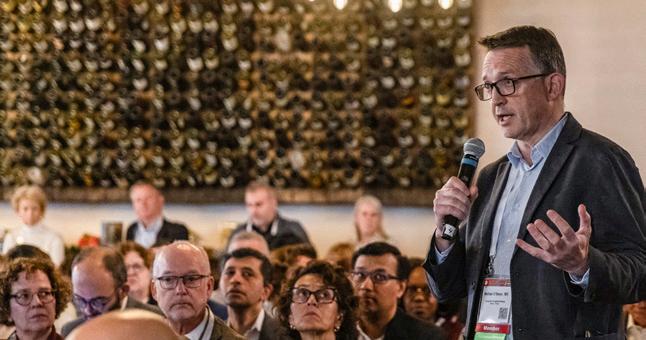

therapy. The DREAMM-7 and DREAMM-8 clinical trials validate in response, progression-free survival (PFS), OS, and indeed quality of life (QOL) with the use of this agent.
Furthermore, in so many settings where CAR T-cell therapy may not be available, this is a very attractive treatment option. This approach will allow for more options for patients, including giving belantamab more safely and less frequently with fewer eye-related symptoms. We also saw updates in the earlier use of CAR T-cell therapy proving an OS benefit over triplet therapies.
The IMF’s video interview with principal investigator Dr. Vania Hungria, who shares the update on DREAMM-7 study phase III survival and efficacy is available at myeloma.org/imf-videos by clicking the “ASH” tab. If you are reading this article in digital format, you can access the video interview directly by clicking HERE .
CAR T-cell therapy and treatments with bispecific antibodies have truly changed the way we approach the patient whose disease has relapsed more than once. It is exciting to see another wave of immunotherapies in myeloma, including a new CAR T-cell product called anitocabtagene autoleucel (anito-cel) with preliminary results presented from the IMMagine-1 clinical trial showing a response rate of more than 90% and seemingly fewer neurological side effects.
Other approaches include using bispecific antibodies in combinations, employing new targets on the myeloma cell for both CAR T and bispecifics (e.g., cevostamab), delivering bispecifics less frequently (e.g., etentamig), and introducing new drugs in the CELMoD drug class.
(continues on next page)
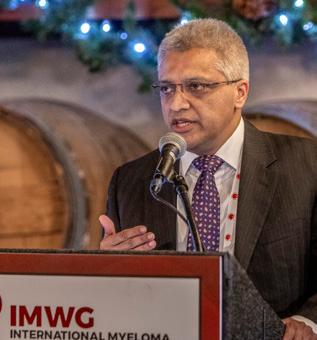
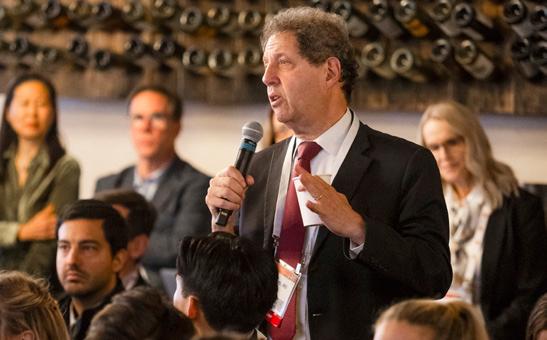

(left page)
1. Dr. S. Vincent Rajkumar (USA)
2. Dr. Rahul Banerjee (USA)
3. Dr. Andrzej Jakubowiak (USA)
4. Dr. Ciara Freeman (USA)
5. Dr. Salomon Manier (France)
6. Dr. Vania Hungria (Brazil)
7. Dr. Nikhil Munshi (USA), Dr. Elias Mai (Germany), and Dr. Philippe Moreau (France)
(right page)
8. Dr. Michael O’Dwyer (Ireland)
9. Dr. Shaji Kumar (USA)
10. Dr. Sagar Lonial (USA)
11. Dr. Evangelos Terpos (Greece)
12. Dr. Morie Gertz (USA)
#WHEREISDRJOE – CONTINUED FROM PAGE 5
This means more options for patients, especially those who have already had CAR T-cell or bispecific therapies, for whom options right now are rather limited.
With longer quantity of life enjoyed by most patients with myeloma, it is critical to find approaches that also improve the quality of life. Many studies did just that! It is wonderful to see so much research being done to improve the lives of patients living with myeloma. The following are just a few highlights:
A secondary analysis of BMT CTN 0702 evaluated if myeloma patients really need to repeat so many urine tests and found that blood testing alone may indeed suffice. The IMF’s video interview with principal investigator Dr. Rahul Banerjee is available at myeloma.org/imf-videos by clicking the “ASH” tab. If you are reading this article in digital format, you can access the video interview directly by clicking HERE .
The “Lovesick” study evaluated the impact of transplant on couples going through the process for myeloma, concluding that the supportive role of care partners and a couples’ perceived relationship health has an impact on posttransplant recovery.
The “Nutrivention” study looked at the possibility of a dietary intervention to slow the progression from monoclonal gammopathy of undetermined significance (MGUS) and smoldering multiple myeloma (SMM) to active myeloma. The IMF’s video interview with principal investigator Dr. Urvi Shah is available at myeloma.org/ imf-videos by clicking the “ASH” tab. If you are reading this article in digital format, you can access the video interview directly by clicking HERE .
Lastly, more studies have been evaluating the benefit of giving less dexamethasone to patients. I address this topic in more detail in a recent editorial in the journal Blood

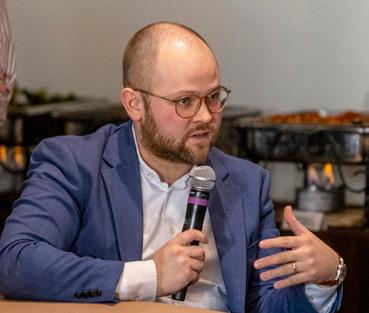
titled “Down with Dex!” Dexamethasone-sparing strategies can reduce steroid-induced toxicity and help improve quality of life. Although the exact dosing and role of dexamethasone in treatment of myeloma needs a more precise definition, this study suggests that further reduction of dex and its toxicity are possible.
The 2024 ASH meeting also served as an invaluable opportunity for auxiliary gatherings of members of the IMF’s two key research entities, the IMF International Myeloma Working Group (IMWG) and the IMF Black Swan Research Initiative® (BSRI®).
The mission of the IMWG is to conduct collaborative basic, clinical, and translational research to improve outcomes for myeloma patients while providing scientifically validated, critically appraised consensus guidelines for the myeloma community globally. The IMWG is currently comprised of 345 myeloma experts from across the globe.
Convening IMWG members to discuss all aspects of myeloma makes for an amazing event, and the annual IMWG breakfast event held at ASH is always well-attended despite the early morning hour prior to the ASH meeting. The breakfast is an opportunity to maximize the collective wisdom of this dedicated group to advance the field for our patients.
The BSRI was established following a brainstorming meeting during the IMWG Summit held in Amsterdam in 2012. In answer to the question, “How can we cure myeloma?”, a group of investigators focused their ambitious research on finding a cure and preventing myeloma in the first place. The BSRI team meets in person during ASH to share the latest exciting data from the IMF’s “CURE Trials” and align on next steps.
The IMF Scientific Advisory Board (SAB) is a “dream team” of world-renowned myeloma experts. The IMF leverages the collective knowledge and experience of the SAB to identify new
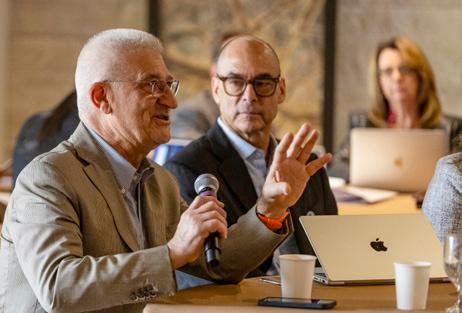
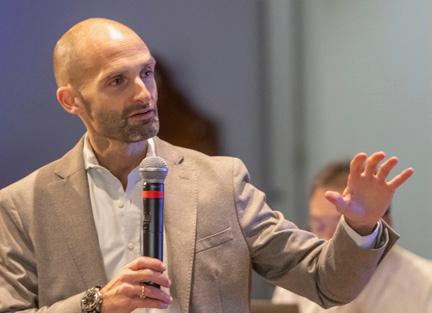
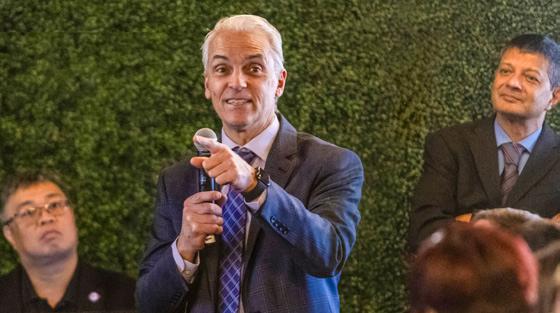
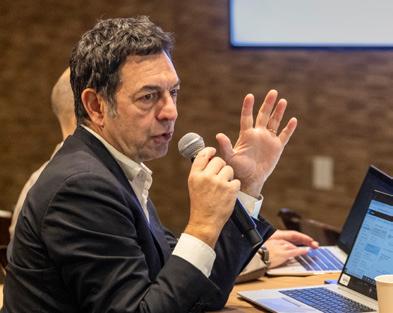
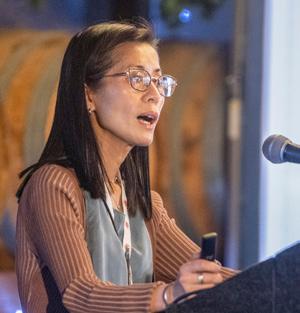
areas of research, collaborate on international research initiatives, and strengthen the scientific rigor of ongoing projects.
The 2024 ASH meeting featured numerous abstracts from members of the IMF’s IMWG and BSRI, as well as the following abstracts from members of our SAB. Here is a sampling of the SAB work presented at ASH:
1. The AQUILA study described earlier in this article (co-authored by Dr. S. Vincent Rajkumar).
2. The DREAMM-7 study described earlier in this article (co-authored by Dr. Vania Hungria).
3. The DREAMM-9 optimization study evaluating belantamab mafodotin in combination with VRd in autologous stem cell transplant-ineligible newly diagnosed myeloma patients (co-authored by Dr. Saad Z. Usmani).
4. The GEM Spanish Group study of the impact of Darzalex on induction and/or consolidation therapy in ‘fit’ newly diagnosed myeloma patients aged 65–80 who are not candidates for transplant (co-authored by Dr. María-Victoria Mateos).
5. Results from a Global IMWG Registry of delayed neurological toxicities after CAR T-cell therapy in myeloma (co-authored by Dr. Thomas Martin).
6. IMWG Immunotherapy Committee long-term follow-up of real-world Tecvayli therapy for relapsed/refractory multiple myeloma (co-authored by Dr. Saad Z. Usmani and Dr. Thomas Martin).
7. The IMF Immunotherapy Database Study to better understand the outcomes of older adults age ≥ 70 years, including frail patients treated in the real-world with teclistamab (co-authored by Dr. Thomas Martin).
8. An International Prospective Study examining discrepancies in perspectives of healthcare providers and patients with relapsed and/or refractory myeloma on novel
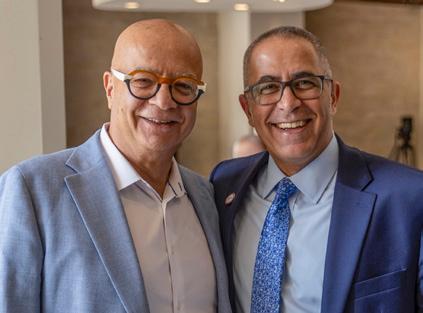
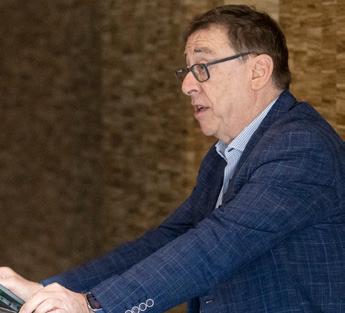
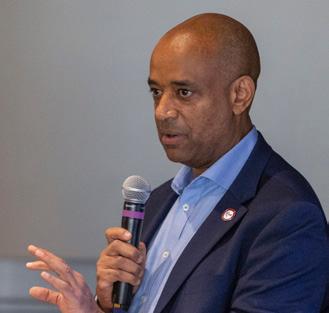
2. Dr. Mario Boccadoro (Italy)
3. Dr. Thomas Martin (USA)
4. Dr. Rafat Abonour (USA) and Dr. Joseph Mikhael (USA)
5. Yelak Biru (USA)
6. Dr. Sæmundur Rögnvaldsson (Iceland)
7. Dr. Bruno Paiva (Spain)
8. Dr. Philippe Moreau (France)
9. Dr. Hang Quach (Australia)
10. Dr. Andrew Spencer (Australia)
therapies across diverse clinical landscapes (co-authored by Yelak Biru).
9. The Frontiers in Myeloma Study of the barriers to clinical trial participation in myeloma (co-authored by Yelak Biru).
10. Key Findings from a Quality Improvement Initiative about advancing patient-centered care to overcome health disparities in multiple myeloma (co-authored by Dr. Joseph Mikhael).
Please visit hematology.org to learn more about these and other 2024 ASH abstracts. Meetings like ASH energize and motivate myeloma clinicians and scientists to accelerate the search for a cure and to create a world where every myeloma patient can live life to the fullest, unburdened by the disease. MT
Myeloma remains a disease with dramatic health disparities, and health equity research remains critical to overcoming these barriers. The 2024 ASH meeting featured several health equity-related abstracts, including studies co-authored by Yelak Biru (IMF President & CEO) and by Dr. Joseph Mikhael (IMF Chief Medical Officer). The IMF is committed to breaking down barriers to health equity and has launched a number of programs under the umbrella of the M-Power initiative.
An ethnically diverse oncology workforce would help address the needs of African American patients with myeloma and help mitigate healthcare disparities. African Americans constitute 13.6% of the total population in the U.S., 6.2% of recent medical school graduates, and only 3% of practicing oncologists. The IMF and the National Medical Association (NMA) and the W. Montague Cobb Health Institute are collaborating on the Medical Student Scholars for Health Equity in Myeloma (MSEM) mentoring program to boost the number of minority physicians dedicated to myeloma by pairing medical students with myeloma expert mentors
The MSEM mentoring program was piloted in 2023 and two abstracts stemming from research projects in its first year were accepted for poster presentations at the 2023 ASH annual meeting, with one student scholar receiving the prestigious 2023 ASH Abstract Achievement Award. ASH bestows these merit-based awards to support select trainees with high-achieving abstracts.
Four MSEM student scholars had their abstracts accepted for poster presentations at 2024 ASH, and Semegne Hiruy (Wake Forest University School of Medicine, Winston-Salem, NC) received the prestigious 2024 ASH Abstract Achievement Award. Ms. Hiruy was mentored by a member of the IMF International Myeloma Working Group (IMWG), Dr. Manisha Bhutani (Atrium Health Levine Cancer Institute, Charlotte, NC) in developing the award-winning abstract titled Primary Therapy Outcomes By Primary Cytogenetic Subtypes in a Large Cohort of Black Patients with Multiple Myeloma at a Single Center
By Robin Tuohy IMF Vice President, Support Groups
The 66th Annual Meeting & Exposition of the American Society of Hematology (ASH) was held in San Diego from December 7-10, 2024. Since 2006, the International Myeloma Foundation (IMF) has included leaders of myeloma support groups as part of our team. Support group leaders have a lot to contribute! They help to elevate the voice of the patient community at this premier medical meeting of clinicians and researchers. They also share their ASH experiences and insights with other patients and care partners, enhancing a supportive CoMMunity, fostering peer-topeer learning, and promoting informed and personalized shared decision-making.
The 2024 Myeloma Voices at ASH Team included 15 leaders; 10 leaders attending in person and 5 leaders participating through a virtual platform, all of whom engaged locally with their support groups and news media as well as globally through the social media hashtag #IMFASH24. Attending ASH in person or virtually is immersive and requires a commitment to long days of focused listening and engagement. The agenda included attending more than 120 oral abstracts, educational sessions, health equity presentations, and poster presentations.
Team meals were typically working meetings to share individual takeaways or to have their questions answered by Teresa Miceli (IMF Nurse Leadership Board), who has been instrumental in helping us navigate and absorb the high-level information being presented at ASH. Those who attended ASH in person had the opportunity to attend the annual breakfast meeting of the IMF International Myeloma Working Group (IMWG) – you can read more about this event from the article by Dr. Joseph Mikhael (see page 4).
For the second year, the Myeloma Voices team wrapped up their ASH experience with a Facebook Live event led by Dr. Mikhael (IMF Chief Medical Officer). I highly recommend that you watch a replay of this video, which features a summary of the most impactful myeloma abstracts from ASH.
Below you can find insights from our Myeloma Voices at ASH Team members that they shared during the meeting:
“As we reflect on the extraordinary progress showcased at ASH 2024, it’s clear that science is delivering groundbreaking therapies at an unprecedented pace. However, a significant challenge remains: ensuring these innovations reach all patients, especially those treated in community settings where the majority of myeloma care occurs. The IMF plays a critical role in addressing this gap through advocacy, education, and programs designed to empower patients and healthcare providers alike. Together, we must commit to advocating for equitable access and amplifying patient voices to prioritize quality-of-life needs. I encourage everyone in the myeloma CoMMunity to get involved – whether by staying informed, sharing your story, or supporting the IMF’s mission – because your participation is key to driving meaningful change.”
– Yelak Biru, diagnosed in 1995
“Each year at ASH, I’m interested to learn more. I’m encouraged to see data on combining drugs with different mechanisms of action showing improved response rates while keeping in mind possible side effects and the patient’s quality of life.”
– Michael Tuohy, diagnosed in 2000
“You walk out of the doctor’s office with that diagnosis of myeloma and you’re not sure what’s going on. I need everyone to understand that there is an army of people who are doing something about this disease.”
– Jim Shoemaker, diagnosed in 2007
“The list of approved therapies now exceeds, well, too many to type here! It’s a bright and shiny world for those of us with myeloma.”
– Barb Davis, diagnosed in 2007
“Attending ASH helps me share the future of myeloma treatments and the real-world results more comprehensively and confidently with my support group and with local physicians. This information helps makes our local patients more knowledgeable in discussing alternatives with their physicians.”
– Linda Huguelet, diagnosed in 2010
“I am always interested in the new therapies for relapsed or refractory myeloma. Since we do not have a cure yet, I am always looking at what my next treatment could be. I also like to bring information back to my support group. We have a diverse group of patients in all stages of myeloma treatment.”
– Sheri Baker, diagnosed in 2011
“Attending ASH as a patient advocate on the IMF Myeloma Voices team is both an honor and a responsibility. I’m eager to learn, engage, and share as much as I can about the evolving science of smoldering multiple myeloma (SMM). Together, we can navigate this complex landscape with a shared commitment to evidencebased care and informed advocacy. “
– Jessie Daw, diagnosed in 2016 (SMM)
“It was encouraging to see that patient preferences and lifestyle choices are playing a key role in deciding next therapies, along with disease status and side-effect and treatment management.”
– Jill Zitzewitz, diagnosed in 2017
“The right people are on the right problem sets. That give us the opportunity to live longer with a higher and better quality of life. I’m really excited about the work going and to share it with my support group”
– Rob Salmon, diagnosed in 2020
“What a mind-enhancing experience. I am so grateful to learn all that is being done for myeloma patients from the amazing people doing the work! You all give me hope and that’s great medicine! I encourage you to stop and think. Remember there are people all over the spectrum of the statistics you see. Read it, ingest it, use it to help you make educated decisions and discussions with your care team.”
– Terry Glassman, diagnosed in 2022
Please visit ash2024blogs.myeloma.org to learn more about the IMF Myeloma Voices at ASH Team, to read their blogs, and watch their videos.
The 2024 IMF Myeloma Voices at ASH program would not be possible without the support of J&J, Regeneron, Karyopharm Therapeutics, and other generous sponsors. We are so grateful for your support!
On a personal note, I would like to thank my entire IMF support group team for their diligent work in planning and executing this intense program, and to Dr. Mikhael for his expertise, dedication, and kindness. Finally, we are all so thankful to each of the myeloma support group leaders who immersed themselves in ASH and shared their voice to help others. MT
Please contact Robin Tuohy at rtuohy@myeloma.org or visit myeloma.org/support-groups for information about joining a local myeloma support group or launching a new one in your area.
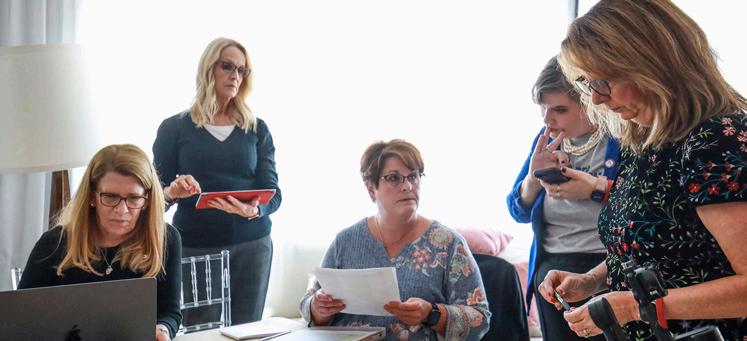


Dr. Joseph Mikhael and myeloma support group leaders discuss the key research takeaways from ASH Visit videos.myeloma.org and select the “Facebook
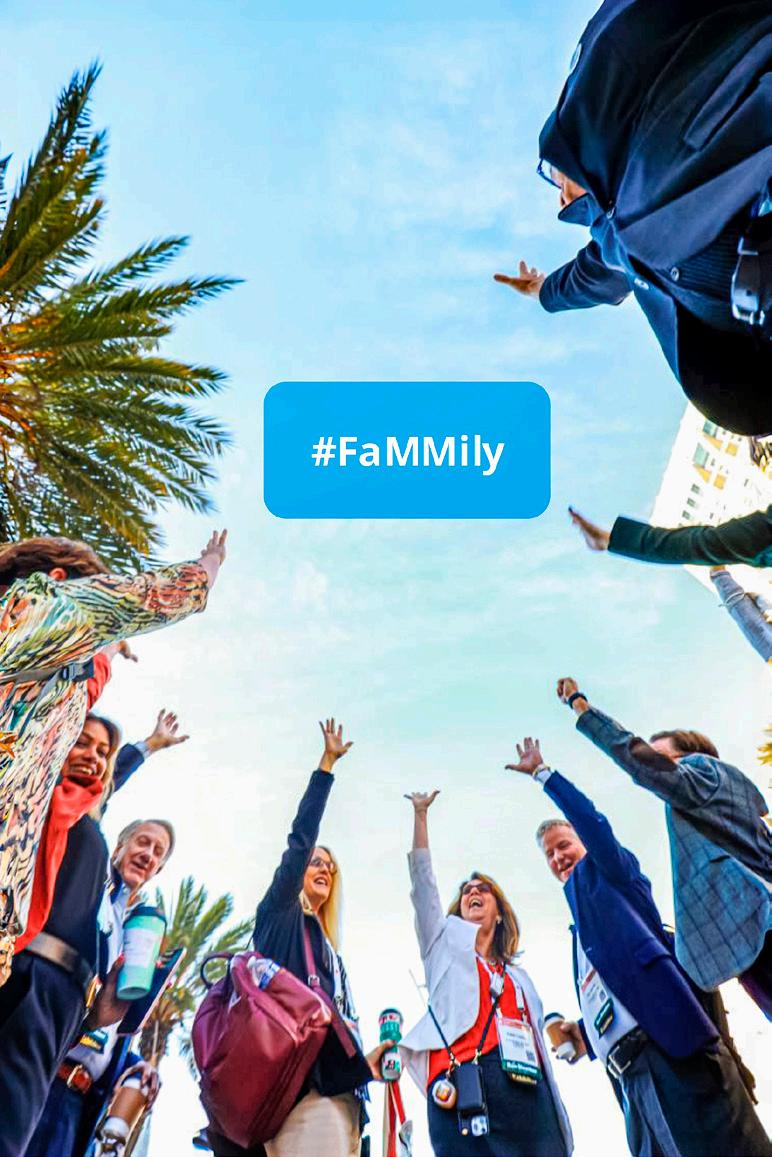

By Daniel Navid IMF Senior Vice President, Global Affairs
The 2024 annual meetings of the IMF Asian Myeloma Network (AMN) were held in October in Seoul, South Korea. They were the IMF’s largest and most ambitious activities held in Asia to date, involving myeloma specialists, patients, and care partners. As of October 2024, the AMN is comprised of 192 members from China, Hong Kong, Japan, Malaysia, Philippines, Singapore, South Korea, Taiwan, Thailand, and Vietnam. For the first time since the founding of the AMN, myeloma experts from India were invited to join our activities as representatives of the AMN’s eleventh membership region.
The IMF’s 4th AMN Master Class kicked off the series of activities in Seoul. Held over the two days of October 17 and 18, the 2024 Master Class program focused upon educating young and myeloma doctors in training about the basics of myeloma and myeloma care. There were 49 attendees from China, India, Japan, Korea, Malaysia, Philippines, Singapore, Taiwan, and Thailand. Each participant was nominated by a senior AMN expert.
The 2024 Master Class was formally opened by AMN Chairman Dr. Wee Joo Chng (Senior Consultant, National University Cancer Institute, National University Health System, Singapore. The expert presentations that followed were made by an eminent international faculty comprised of AMN members. Topics included global myeloma diagnostic criteria, prognostic factors, risk stratification, treatment options in Asia for newly diagnosed transplant-eligible and transplant-ineligible patients with myeloma, treatment options in Asia for relapsed or refractory multiple myeloma patients, CAR T-Cell therapy and other immune therapy options, and infection and other side effects. Each presentation was followed by Q&A discussions between faculty and participants.
As in past years, the 4th AMN Master Class gave participants the opportunity to present clinical cases which were reviewed by the expert faculty. Once again this proved to be very much appreciated, with the participants being given a unique opportunity to consult with renowned myeloma specialists. At the end of the program, a Master Class Exam was conducted, followed
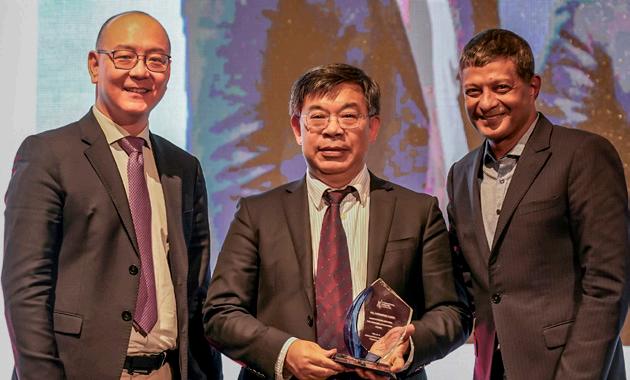
by a ceremony of awarding certificates to the participants during the Master Class dinner.
Plans are proceeding to expand the program in the future based on the success of the 4th AMN Master Class.
On October 18, myeloma patient groups from across Asia came together to share and learn from their individual experiences at the 4th AMN Patient Forum. The AMN welcomed 58 representatives from myeloma patient groups in China, Hong Kong, Malaysia, Philippines, Singapore, South Korea, Taiwan, and Thailand. As in past years, the AMN Patient Forum was chaired by AMN Executive Member Dr. Daryl Tan (Mount Elizabeth Novena Hospital, Singapore).
Yelak Biru (IMF President & CEO) who is also a myeloma patient since 1995, made a presentation about IMF Patient Support Activities. Diane Moran (IMF Senior Vice President, Business Relationship Management) helped the participants familiarize themselves with the AMN Patient Tool Kit. This was followed by Patient Society Reports led by Dr. Daryl Tan.
Remarkable growth was demonstrated by the developing members in Malaysia, Philippines, Taiwan, and Thailand, while impressive progress was observed in the more established groups from China, Hong Kong, Korea, and Singapore. The Korean Blood Disease Cancer Association led the way by providing numerous insights into their success.
Another highlight of the AMN Patient Forum was the four working group sessions. These were focused on establishing a society, developing a program, working with physicians, and fundraising. The participants exchanged valuable information and identified the requirements for follow-up projects.
The 8th annual AMN Summit was held from October 18 through 20, 2024. The AMN Summit was opened by IMF Chairperson of the Board Dr. S. Vincent Rajkumar (Mayo Clinic, Rochester, Minnesota, USA), who delivered the keynote address on improving myeloma outcomes with limited resources. A total of 135 participants attended this important annual event from all AMN countries
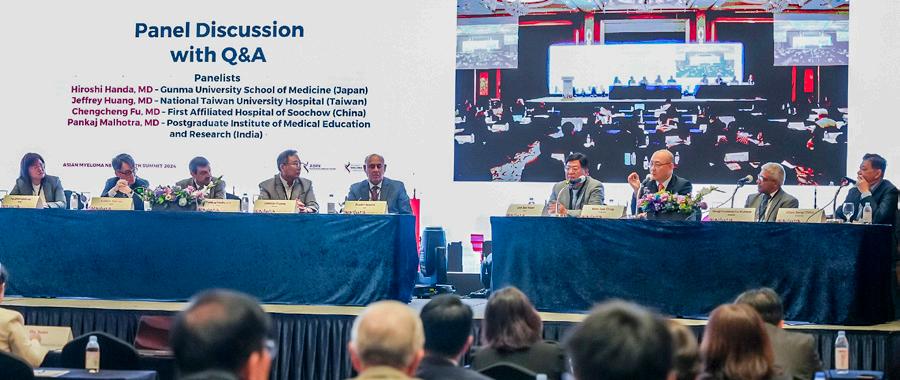

and regions. Myeloma experts from India participated in the AMN Summit for the first time.
AMN Chairman Dr. Wee Joo Chng led the way in raising ideas for new AMN projects including real-world natural history studies, creating an AMN registry, launching new clinical trials (especially for patients with high-risk myeloma), “bridging” therapy, and working on AMN treatment guidelines (both new and revised).
Informative sessions of the AMN Summit also included discussions of the latest news about the treatment of myeloma, high-risk disease, real-world data on immune therapy, improving access to treatment, and the AMN Working Group projects.
At the AMN Summit Award Dinner, Executive Committee member Dr. Wenming Chen (Beijing Chaoyang Hospital, China) was celebrated as the recipient of the 2024 AMN Distinguished Award. Dr. Rajkumar presented the award following remarks from AMN members Dr. Jin Lu (Peking University People’s Hospital, China) and Dr. Gao Wen (Beijing Chaoyang Hospital, China) to recognize Dr. Chen’s groundbreaking accomplishments in China as well as throughout Asia.
Dr. Chen is the second recipient of the AMN Distinguished Award. In 2023, Dr. Kazuyuki Shimizu (member of the IMF International Myeloma Working Group since 2000 and a former staff physician at Higashi Nagoya National Hospital, Japan) received the
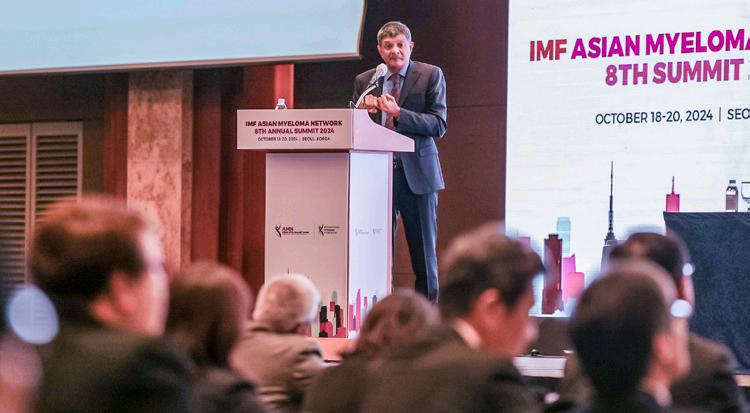
award. With the increasing recognition of the AMN’s body of work, the award provides a spotlight to honor leading Asian myeloma specialists.
The second day of the Summit was focused on reports from the five AMN working groups: Infection & Side Effects, Immunotherapy, New AMN Research, AMN Clinical Trials, and the AMN Tissue Bank. In each working group, priorities for action in 2025 were identified, including the production of AMN guidelines and research projects.
The final session of the AMN Summit considered future directions of the AMN, such as membership, outreach, cooperation with other regions, AMN clinical trials, as well as future AMN Summit, Master Class, and Patient Forum events.
The IMF extends its warmest gratitude to the AMN members and the Master Class and Patient Forum participants. Appreciation is also extended to the international experts who joined and helped guide the work of this year’s AMN Summit: Dr. Tom Martin (Helen Diller Family Comprehensive Cancer Center, University of California San Francisco), Dr. Shaji Kumar (Mayo Clinic, Rochester, Minnesota), and Dr. Jean Luc Harousseau (Institut De Cancérologie De L’Ouest, France). The AMN is deeply indebted to these individuals.
The 2024 AMN Summit was highly successful and truly enriching, generating a lasting impact within the Asian region and across the global myeloma community. The 2025 AMN Summit will take place in Nagoya (Japan) from October 16 through 19, 2025. It will feature an expanded agenda, with more round-tables and satellite symposia. The 2025 AMN Patient Forum will take place in Nagoya during the same period of time. However, in order to enable the expansion of the AMN Summit, the 2025 AMN Master Class will be held in Singapore from July 25 through 27, 2025. MT
By Danielle Doheny IMF Director, Public Policy & Advocacy
The IMF Public Policy & Advocacy team has prepared an overview of how the new political landscape in the U.S. may influence our priorities in myeloma advocacy. Key areas include potential changes in healthcare policy under the new administration, shifts in Senate and House control that may affect our legislative goals, and the implications of continued state-level party control.
With President Trump in office, we anticipate a shift in healthcare policy that may affect myeloma patients’ access to affordable treatments. He has previously prioritized drug pricing reform, though his approach is different than most. To lower prescription drug costs in the U.S., he proposed to tie them to those in other high-income nations through an international reference pricing model. While this approach received significant attention, it lacked detailed implementation strategies, and it is still unclear what we should anticipate.
The Medicare program allows for direct negotiations on drug prices. While popular among some, this program is opposed by many lawmakers. However, it remains uncertain if there is enough momentum to repeal it altogether. Should this program remain, the U.S. Department of Health and Human Services (HHS) might consider adjustments within its legal boundaries, potentially exploring alternatives to the negotiated approach while still aiming to reduce costs.
The IMF is monitoring policy changes closely, including any modifications or challenges to Medicare’s drug pricing policies that could limit access to essential myeloma treatments, such as Revlimid® (lenalidomide). The IMF’s commitment to advocating for policies that ensure access to life-saving medications for myeloma patients, as well as affordability and research funding, remains steadfast regardless of changes in administration.
Republicans have won a majority in the Senate. While the Senate retains a 60-vote requirement to pass most legislation, this majority may bring shifts in committee leadership, notably in health-related committees that oversee Medicare policy and drug pricing. The IMF will monitor any policy proposals that could impact Medicare Part D, as well as bipartisan support for provisions like the Cancer Drug Parity Act. This environment may also affect pharmacy benefit managers (PBM) reform discussions, essential for ensuring fair and timely access to life-saving treatments.
The Republicans are to have a slim majority in the House of Representatives. This tight margin suggests that any new healthcare policies or patient protections will require bipartisan support. Given the narrow control, there could be challenges in advancing specific legislative priorities quickly. The IMF will focus on engaging with key committees to advocate for protections
around patient access, affordability, and innovation in myeloma care. Note that the Cancer Drug Parity Act is a bipartisan bill. Our tactics for passage change based on who has the majority; however, this bill has just as much of a chance of moving forward today as it did yesterday.
With no significant changes in gubernatorial control, we expect state-level initiatives to remain relatively stable. However, states continue to play a pivotal role in healthcare reform, including Medicaid expansions and drug pricing initiatives. The IMF will continue to engage with state-based coalitions on issues that could affect local access to myeloma treatments and resources.
Stable party control suggests continuity in most state healthcare policies. However, there may be changes in programs that receive both federal and state funding. Our state advocacy efforts will focus on working with legislatures that remain open to addressing out-of-pocket caps, access to new therapies, and potential Medicaid reforms that impact myeloma patients.
Federal funding for cancer research remains a critical priority for the IMF and the broader myeloma community. The National Cancer Institute (NCI) and the National Institutes of Health (NIH) provide essential resources for advancing new treatments and innovative therapies. While cancer research funding has historically received bipartisan support, the new administration’s budget priorities will determine future investments. Additionally, policies surrounding clinical trial accessibility and FDA regulatory frameworks could impact how quickly new myeloma treatments reach patients. The IMF will continue advocating for:
Robust federal funding for NIH and NCI to drive breakthroughs in myeloma treatment,
Policies that improve accessibility to clinical trials, and
Streamlined FDA approval processes to accelerate the development of life-saving therapies.
The outcome of the recent election introduces a new dynamic in Washington, requiring strategic approaches for the IMF’s top advocacy priorities, including ensuring access to affordable medications, protecting Medicare benefits, and supporting legislation favorable to myeloma patients. We will continue to share with you any new or evolving insights on policy shifts and advocacy opportunities. MT
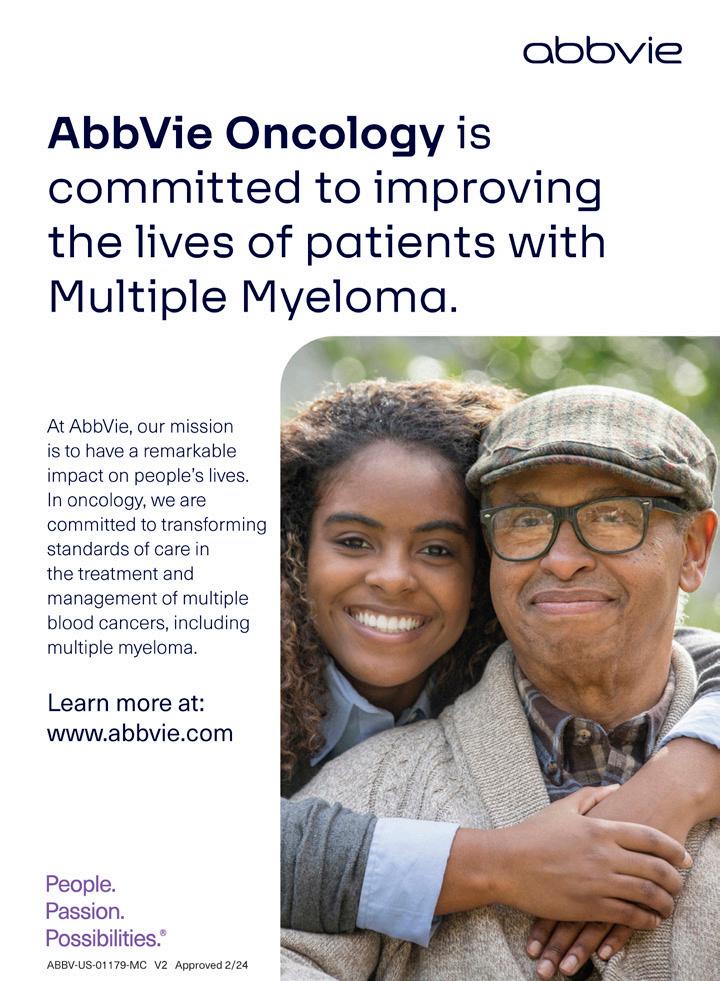
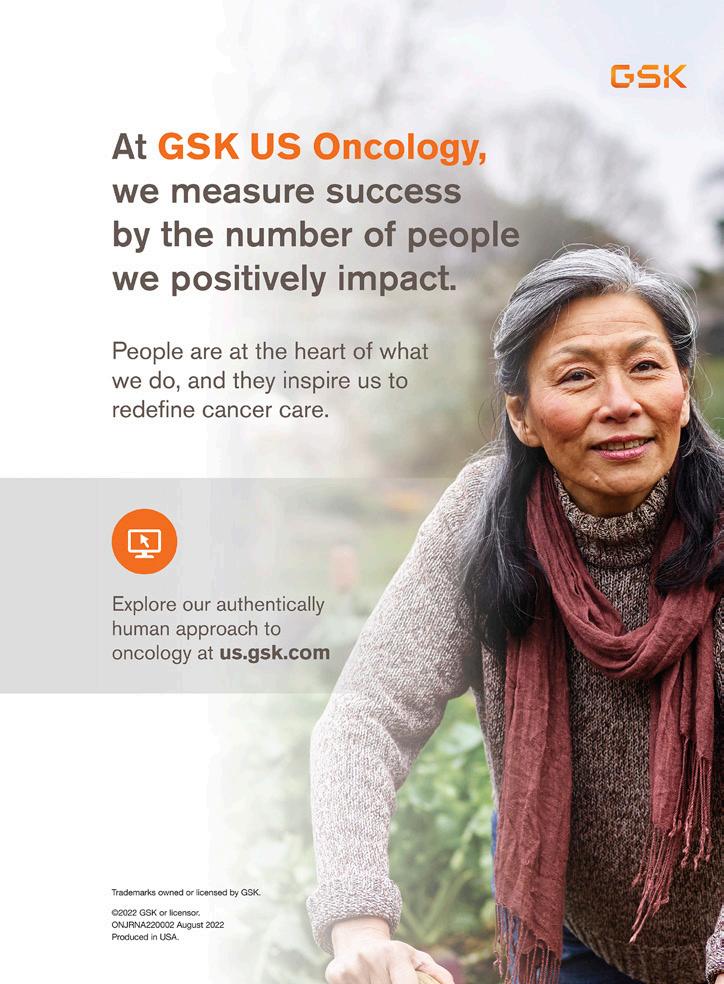
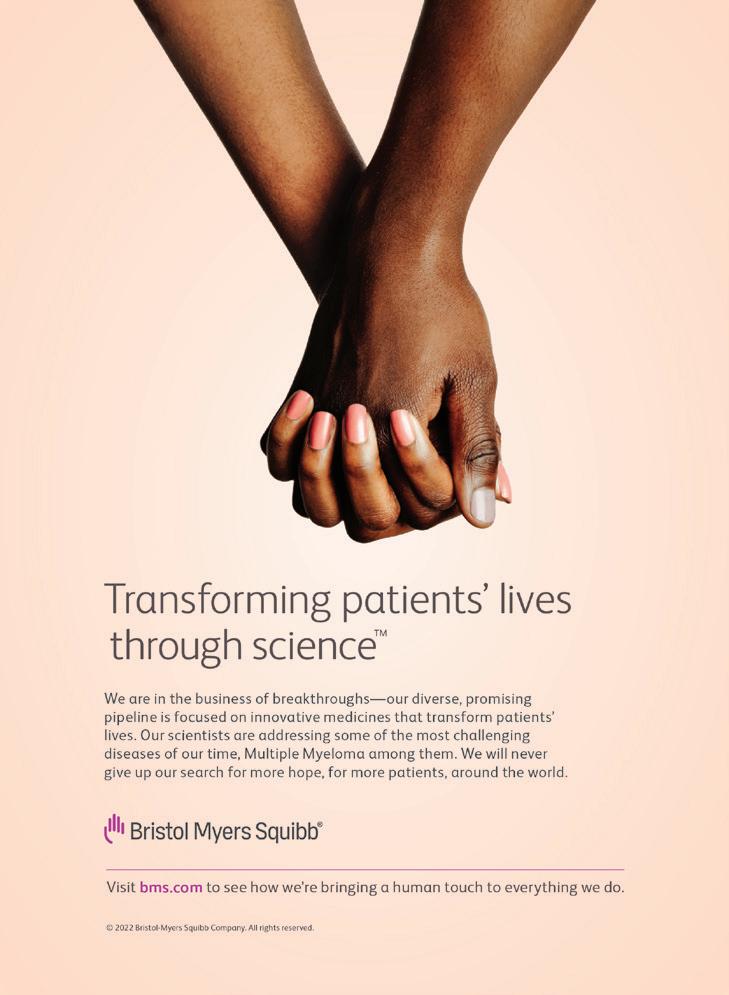
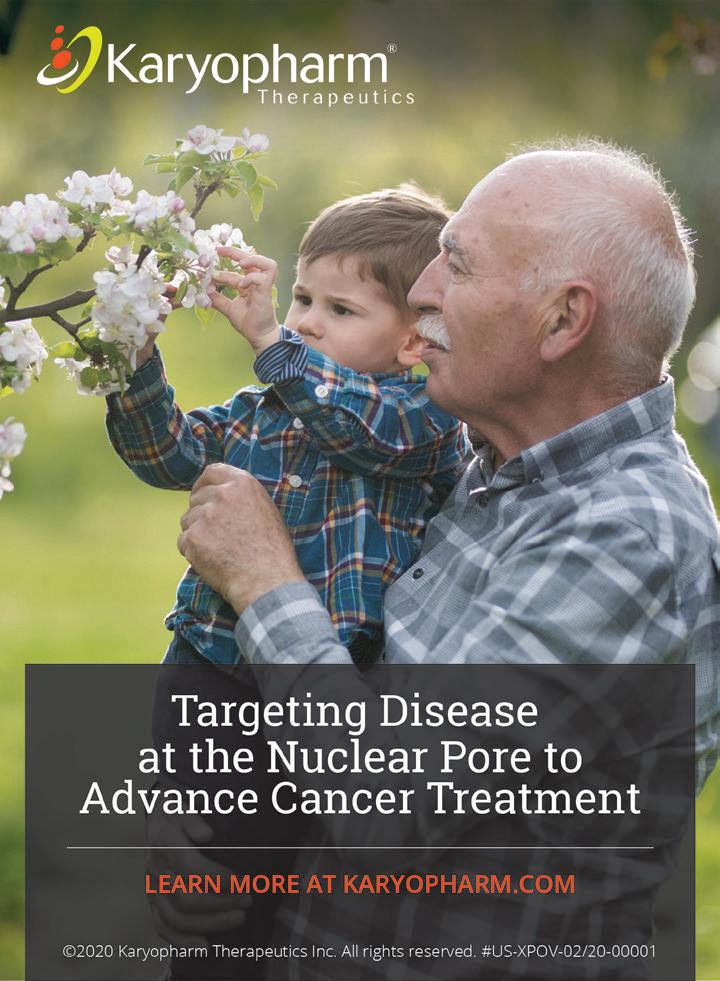
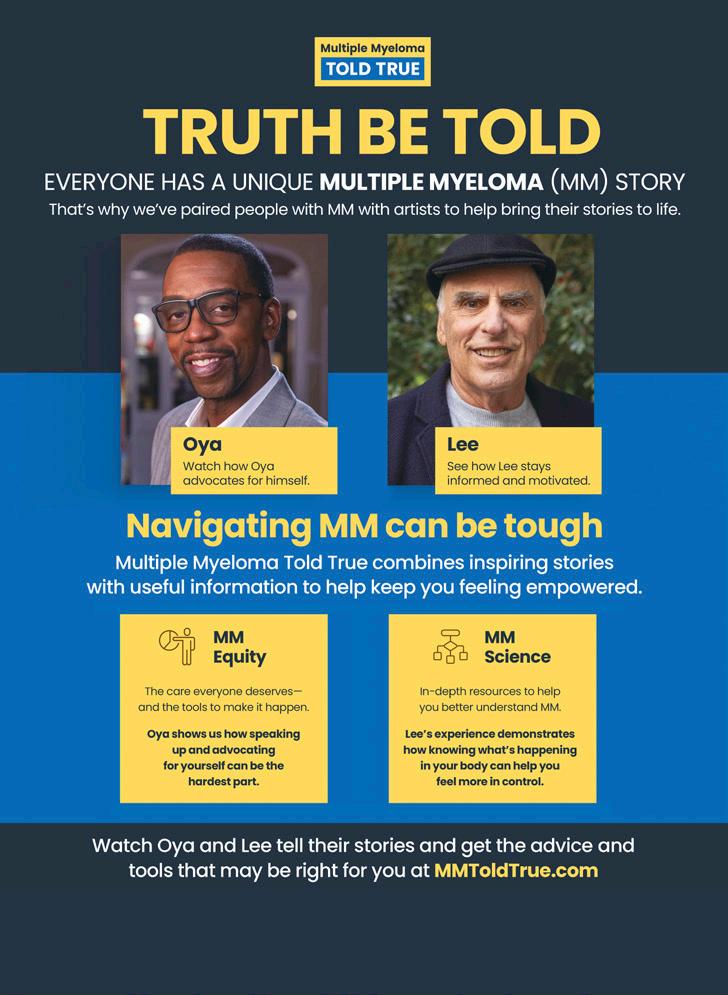


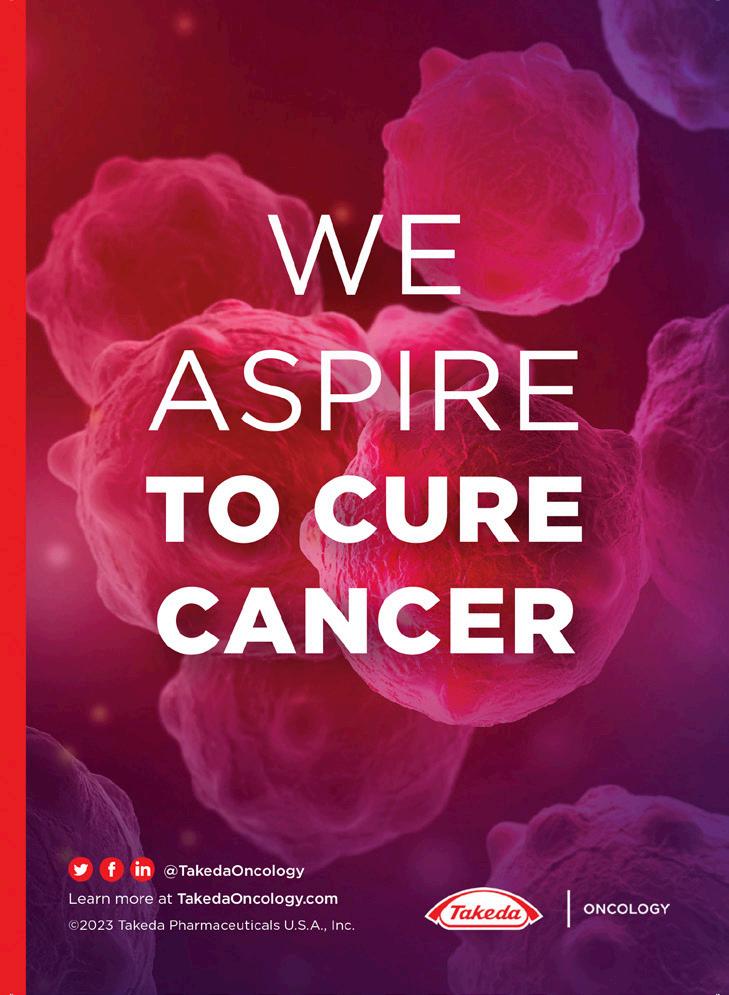
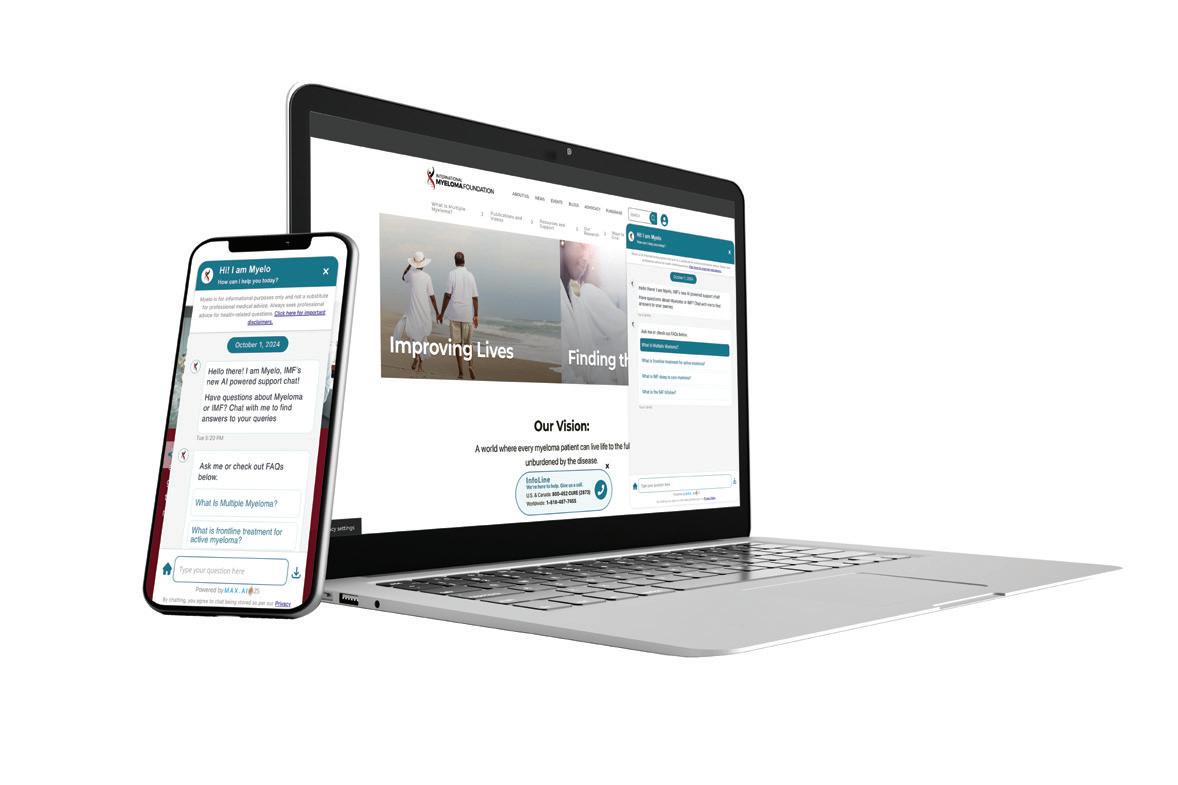
Boca Raton
Patient & Family Seminar
March 14-15, 2025
Boca Raton Marriott – Boca Center 5150 Town Center Circle – Boca Raton, FL 33486
If you’re attending the seminar in Boca Raton, join us for the Miracles for Myeloma 5K Run/Walk on March 15. Registration opens at 6:30 a.m. and the run/walk starts at 7.
May 2-3, 2025
DoubleTree by Hilton – Center City 237 South Broad Street – Philadelphia, PA 19107
If you’re attending the seminar in Philadelphia, join us for the Miracles for Myeloma 5K Run/Walk on May 3 at FDR Park, 1500 Pattison Avenue. Registration opens at 6:30 a.m. and the run/walk starts at 7.
August 15-16, 2025
Hilton Los Angeles – Universal City 555 Universal Hollywood Drive – Universal City, CA 91608
If you’re attending the seminar in Los Angeles, contact us closer to the event date about possible auxiliary events.
October 3-4, 2025
Chicago Marriott – Schaumburg 50 N Martingale Road – Schaumburg, IL 60173
If you’re attending the seminar in Chicago, contact us about taking part in the Miracles for Myeloma 5K Run/Walk closer to the event date.
Founders
Brian D. Novis • Susie Durie • Dr. Brian G.M. Durie
Board of Directors
Chairperson Dr. S. Vincent Rajkumar
Christine Battistini
Yelak Biru
Loraine Alterman Boyle
Martine Elias
George T. Hayum
Jason Katz
Benson Klein
Andrew Kuzneski, III
John O’Dwyer
Dr. Sagar Lonial
Dr. Nikhil Munshi
Charles Newman
Kent Oliver
Poornima Parameswaran
Matthew Robinson
Sanjay Singh
Maria Whitman
IMF Executive Team
Yelak Biru President & Chief Executive Officer
Peter Anton Vice President, Marketing
Sylvia Dsouza Vice President, Development Dr. Joseph R. Mikhael Chief Medical Officer
Diane Moran Senior Vice President, Business Relationship Management
IMF Staff
Betty Arevalo Inventory Control Manager
Becky Bosley Director, Support Groups
Brittnay Brandon Senior Meetings Coordinator
Nancy Bruno Director, Support Groups
Lisette Contreras Administrative Assistant, Meetings & Events
Danielle Doheny Director, Public Policy & Advocacy
Jon Fitzpatrick Senior Manager, Meetings & Events
Kimberly Francis Assistant Director, Development, Peer-to-Peer Fundraising
Esther Garnica
Administrative Assistant, Operations
Sherrie Guerrero Senior Director, Human Resources
Elizabeth Hernandez Administrative Assistant, Human Resources
Paul Hewitt Coordinator, InfoLine
Kevin Huynh Coordinator, Tech Solutions
Katie Ives Meeting & Project Coordinator
Marya Kazakova Editor-in-Chief, Publications
Missy Klepetar Coordinator, InfoLine
Sapna Kumar Marketing & Communications Strategist
Phil Lange Director, Accounting

Lisa Paik Executive Vice President, Research & Operations
Jennifer Scarne Chief Financial Officer
Robin Tuohy Vice President, Support Groups
Jason London Senior Manager, Marketing & Communications
Jim Needham Publication Design
Meghan O’Connor Meeting & Project Manager, Content & Communications
Selma Plascencia Senior Director, Operations
Joy Riznikove Database Administrator
Cecilia Romero Project & Technology Manager, Support Groups
Miko Santos Senior Manager, Tech Solutions
Narmeen Shammami Senior Research Project Coordinator
Brando Sordoni Senior Associate, Accounting & Distribution
Rafi Stephan Assistant to the President & Chief Executive Officer
Daria Tabota Associate, Marketing & Communications
Joi Tisdale Project Manager
Sandy Wilkes Grants Manager
Jennifer Wieworka Director, Support Groups

International Myeloma Foundation
Celebrating 35 Years: Defying Boundaries, Redefining Possibilities
4400 Coldwater Canyon Avenue, Suite 300
Studio City, CA 91604 USA
myeloma.org
800.452.CURE
Change Service Requested
myeloma.org
Celebrate our 35th Anniversary with Us!
2025 marks a major milestone for the International Myeloma Foundation. Your unwavering support and resilience have made these 35 years possible. Together, we’ve championed patients and care partners, educated healthcare professionals, and funded groundbreaking myeloma research. We invite you to join us as we celebrate this incredible journey and look forward to an even brighter future. Let’s honor the past, celebrate the present, and continue to defy boundaries and redefine possibilities.